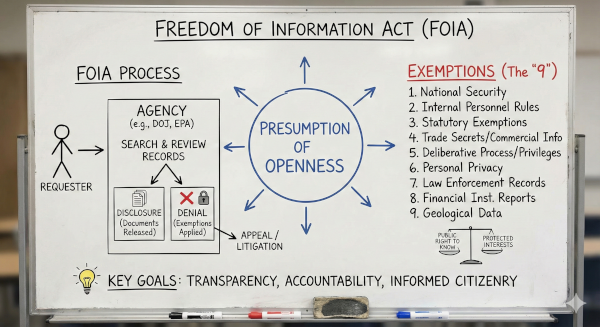Tag: Government transparency
-

Legal Analysis: Democracy Forward Foundation v. Department of Justice
Judge Chutkan’s opinion demonstrates careful judicial reasoning that respects both the need for government transparency and the practical constraints agencies face in processing FOIA requests. By granting expedited processing for the core requests while trimming overbroad elements, the court struck a balance that serves FOIA’s transparency goals without creating unworkable burdens.
-

Wichita needs transparency from its agencies
When the Wichita city council delegates spending to outside agencies such as Visit Wichita, it should insist on the same transparency requirements the city itself faces.
-

Missing from Wichita city documents: Sales tax
It would be simple for the City of Wichita to include additional relevant information regarding economic development incentive decisions.
-

Wichita should post fulfilled records requests
When the City of Wichita fulfills records requests, it should make those records available to everyone.
-

Wichita legal notices an easy start on the path to transparency
Kansas law requires publication of certain notices in newspapers, but cities like Wichita could also make them available in other ways that are easier to use.
-

Wichita water plant contract
Wichita should consider discarding the water plant contract in order to salvage its reputation and respect for process.
-

Wichita consent agenda reform proposed
The Wichita city council will consider reforms to the consent agenda.
-

For Wichita, another agenda surprise
Wichita city hall again places a controversial matter on the consent agenda, where it might pass without notice.
-

Wichita checkbook updated
Wichita spending data presented as a summary, and as a list.
-

Wichita airport hotel ownership unclear
The Wichita City Council plans to use the consent agenda to vote on an item containing confusing language.
-

In Wichita, respecting the people’s right to know
The City of Wichita says it values open and transparent government. But the city’s record in providing information and records to citizens is poor, and there hasn’t been much improvement.
-

Wichita legal notices an easy start on the path to transparency
Kansas law requires publication of certain notices in newspapers, but cities like Wichita could also make them available in other ways that are easier to use.